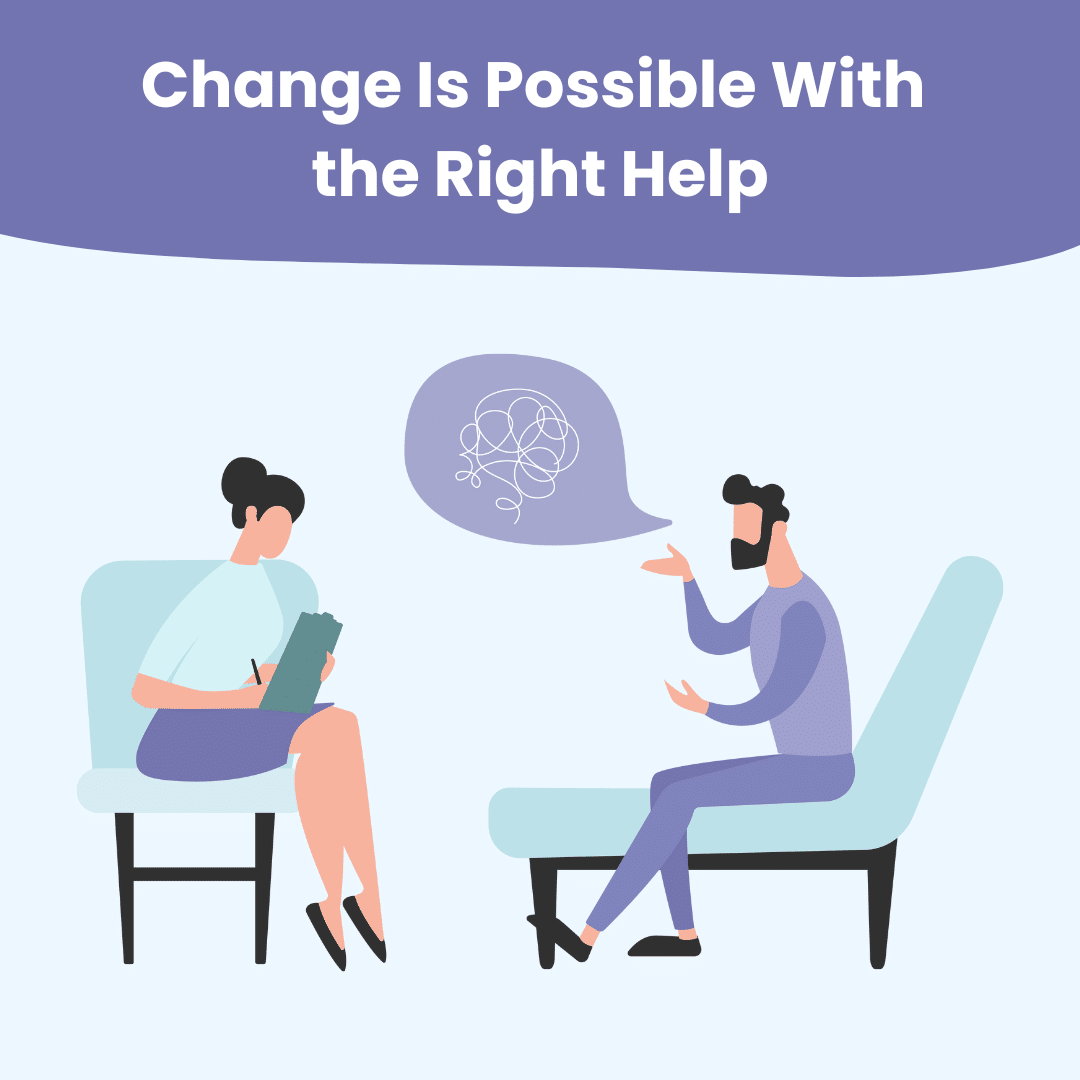
- Updated on 8 July 2024
Tags: counselling issues; counselling; therapy; stress
Do I need therapy? Will therapy help me? What will I talk to my therapist about?
Have these questions crossed your mind before?
People often dismiss their issues or worry that their problems aren’t “bad enough” to sign up for therapy. For example, a common thought pattern is, “I have a roof over my head and a job in the midst of a global pandemic, I shouldn’t complain about how my boss is making my life miserable”. It may be true that there are others whom you may consider “worse off” in life. That doesn’t mean, however, that your difficulties are any less real or valid.
Each person’s life experiences are unique. If something bothers you, it bothers you. Nothing is “too minor”. There are different issues you can seek therapy for. A useful gauge to determine when you should seek therapy is asking yourself how much the issue affects you. How disruptive is it to your life?
A therapist will hear you out to learn more about what is bothering you. Subsequently, the therapist may discuss with you how you prefer to navigate the situation. Some examples include removing yourself from the stressful situation where possible, recognising the signs of anger, and challenging negative thoughts.
You may also learn coping strategies or emotional regulation skills. Some people learn to communicate better and explore ways to seek the support of people around them. There are endless possibilities, depending on what you wish to gain.
This article covers how to know when to go for therapy, and some common issues people seek therapy for.
How to Know When to Go for Therapy
The next time you find yourself asking “Do I need therapy?” and still feel uncertain, look out for these signs. If you resonate closely with them, it may be time to seek professional support.
You experience persistently low or intense moods.
Nobody is expected to be in control of our emotions all the time. Feeling sad, distressed, or angry from time to time is only human. However, if you have been feeling persistently overwhelmed by negative emotions and find it hard to manage them, it may be a sign to seek professional help.
Grappling with intense emotions for an extended period of time often has adverse impacts on many other aspects of your life. For instance, you may let your anger get the better of you and exhibit hostility towards your loved ones. In such cases, going for therapy would be beneficial as a therapist is equipped with the skills and resources to help you work through your emotions and cope with them.
You find it increasingly difficult to build or keep up with social relationships.
Social relationships are important for our overall wellbeing. Of course, this does not mean that you need to have a huge social circle. Having a few close friends or family that you can turn to when you are down can be helpful too.
If you are consistently facing issues communicating with your loved ones, are often misunderstood, or find yourself isolated from others, considering therapy is a good move. Therapists can sieve out the underlying issues plaguing you from forging meaningful relationships and help you better understand your current situation. As an added benefit, you also learn to develop stronger interpersonal and communication skills.
You feel like you have exhausted all your resources.
At times, your problems may aggravate and become too complex for you to resolve alone. On one hand, you feel that there is too much going on and you lack the mental capacity or energy to deal with the issues by yourself. On the other hand, you find it hard to confide in your family or friends or feel uncomfortable doing so.
Speaking with a therapist in such cases is wise as they can provide you with a non-judgemental, neutral listening ear and advice. Your therapist is invested in your mental health, and does not have a vested interest in the outcome of your decisions, actions or behaviour. Moreover, as what you share during sessions is confidential, you are free to speak your mind.
You have been distressed by the same issues for a long time.
When deep-seated psychological issues are left unresolved, they may fester and continuously surface in our daily lives. These issues often cause mental strain and exhaustion, and hinder your focus and mood. You may be at work or a gathering with friends, but you are not fully present as your mind is constantly worrying about something else.
The question “Do I need therapy?” is not always an easy one to answer. However, if you notice that the same few issues have been recurring and affecting how you feel or behave, it is sensible to set time aside for therapy. A therapist can guide you along in assessing your emotions and offer you new ways to think about your issues. While it is not always possible to overcome some issues immediately, you will learn how to stop letting them impact you as much.
You wish to change your unhelpful thoughts but are unsure of how to do so.
You have decided that you no longer want your intrusive or negative self-talk to impair your daily functioning. Nevertheless, you are uncertain of how or where to start. Here, going for therapy is a good call as your therapist can help you set goals for yourself and find a clearer direction moving forward.
At the beginning, you may be filled with apprehension and doubts especially if therapy is new to you. A therapist is best placed to explain how it all works, answer your questions, and provide you with support on this self-improvement journey.

Issues People Seek Therapy For
This section covers some common issues people seek therapy for. While these reasons may be listed separately, in reality, many of them overlap with each other and are closely related.
At times, individuals come into therapy without a clear reason; all they know is that they are feeling overwhelmed and need to talk to someone. Conversely, others come in with one specific issue in mind, only to realise that as therapy progresses, new insights about themselves and other areas of focus come into view.
There are even some who enter their first session having second thoughts about their decision to seek help: “Do I need therapy, or am I overreacting?”. These different scenarios are all plausible at the beginning of one’s therapeutic journey. Nonetheless, entering therapy with an open mind helps you explore new ideas, possibilities, and areas for self-growth.
In no particular order, here are some examples of issues people seek therapy for:
Stress
All of us have experienced stress at some point. There is eustress, or “good stress”, that helps us perform well. On the other hand, distress, or “bad stress”, can be overwhelming. It prevents us from functioning at our full potential. Different people will find different things stressful, to varying degrees. Common experiences include work related stress and stress from interpersonal conflict at home, work, or school.
Key Facts About Stress
According to a 2018 study, nearly 74% of people have felt so stressed that they were unable to cope with daily issues.
Moreover, 46% complained that they ate too much or ate unhealthy due to stress.
Stress can also lead to other mental health conditions. For example, 51% of those who felt stress also reported feeling depressed, and 61% reported feeling anxious.
However, therapy can not only bring the symptoms of stress under control but also help manage symptoms of co-existing conditions.

Decision making
Making an important decision? Examples include career decisions, whether to stay in or leave a relationship, whether to relocate, and so on. Times like these can be confusing, with pressure from family and friends. Each of them has an opinion of their own. It can be helpful to discuss your thoughts with a neutral, objective therapist, who may help you identify what’s most important to you in the decision making process.
Coping with transitions in life
Most of us like staying in our comfort zones. When changes happen, whether by choice or not, adapting can be a challenge. For instance, a newly married individual might experience several changes simultaneously, such as moving into a new home, having to communicate with their partner, navigating relationships with the in-laws, and entering parenthood. Other examples of life transitions include having a pet for the first time, entering the workforce upon graduation, changing jobs or schools, relocating, retiring, and so on.
Grief and loss
Mention this, and most of us think of someone losing a loved one. While most societies readily recognise the gravity of losing a loved one, we can grieve over many other losses as well. This is so even if they are unaware that what they are experiencing is essentially the grieving process.
According to the Kübler-Ross model, the five stages of grief include denial, anger, bargaining, depression, and acceptance. Examples of other losses include the loss of one’s childhood home, the loss of a beloved pet, the loss of a romantic relationship or marriage, the loss of a previous lifestyle, the loss of a job, and the loss of good health.
Difficulty regulating one’s emotions
While we may not be able to control our emotions per se, changing how we respond to them can help us cope with life better. For example, an individual may feel angry during a heated disagreement with their partner. The anger itself is understandable, and normal. However, learning to regulate their emotions can make the difference between a healthy response (eg walking away calmly) and an unhealthy manner (eg yelling at their partner).
In addition, some may also think to themselves, “Do I need therapy if I am already on medication (eg antidepressants)?” The answer is simple: talk therapy and medication need not be mutually exclusive. In fact, a combination of both can possibly help you reconnect with yourself at a deeper level. While medication works to improve your mood and sleep cycles, therapy allows you to explore your thoughts and experiences more extensively.
Intrusive thoughts or overthinking
It can be hard to fall asleep if your mind is busy running through the 1001 different possibilities of what your boss had in mind when they said, “That’s a lot of information you provided”. Was it a compliment? What if it meant that you’re a hardworking employee? Or could it mean that you were not concise enough? Worse still, perhaps that was a veiled way of insinuating that you’re not good enough. The horror!
Reflecting about things that occurred over the course of the day is normal. However, you may want to see a therapist if you’re starting to lose sleep, your appetite changes, or the thoughts interfere with your relationships or daily tasks.
Communication difficulties
This is a common reason people enter couples therapy. People often unknowingly get caught up in unhelpful patterns of communication which cause much difficulty in getting one’s point across, and in turn feeling misunderstood. A therapist helps to bring forth and highlight these communication patterns to individuals and couples and guide them to healthier ways of interacting with each other. Struggling with communication is also common among family members.
Addiction
People may seek therapy for addiction to smoking, drugs, sex, eating, or even coffee. Overcoming an addiction alone can be very challenging. In fact, it often takes some time before an individual recognises and acknowledges the addiction in the first place. Therapists who work with individuals experiencing addiction often receive additional training specific to addiction. If you are seeking professional help for an addiction, look for a professional therapist or psychologist who has sufficient training and experience in working with people struggling with addiction.
Self-improvement
There doesn’t always have to be a “problem” for someone to enter therapy. People also seek therapy to improve themselves, or to take preventive measures before things get worse. For instance, busy professionals may wish to find ways to incorporate self-care and coping strategies into their daily routine to prevent a build-up of stress. Others may wish to increase their assertiveness or boost their confidence in different aspects of life such as at work or home.
Pretty similar to why people frequent the gym, isn’t it?
While the issues above provide a glimpse into what therapy is, it is equally important to take note of what therapy is not. Contrary to popular belief, therapy is not about a therapist giving advice to a client, a therapist making judgmental statements about what the client is doing that is “right” or “wrong”, or a therapist telling a client how to resolve their issues.
In fact, most of the hard work that leads to progress is undertaken by the client, not the therapist. To find out more, read Signs of a Bad Therapist.
Takeaway
Keep in mind that both lists above are nowhere near exhaustive. There are other signs that may suggest it’s time to seek support as well as alternative reasons for considering therapy. If you are struggling with any of the issues mentioned above, or any other issue that was not included here, talk to one of the Professional Therapists at Talk Your Heart Out (TYHO).
If the Professional Therapist feels that you may benefit from a different professional, such as a psychiatrist, or social worker, they will let you know, or make a referral. Ultimately, when faced with the question, “Do I need therapy?”, you hold the power to decide on the next course of action.
The bottom line is, you don’t have to struggle alone.

Related Articles
Latest Articles
Recent Posts
- Understanding Employee Assistance Programs in Singapore (And Why Your Company Needs One)
- A Therapist’s Guide to Setting Boundaries with Parents
- Anger Management in Singapore: Top 6 Benefits
- Individual vs Group Counselling in Singapore: What’s Right for You?
- Thinking of Switching Your Therapist in Singapore? Read This First


